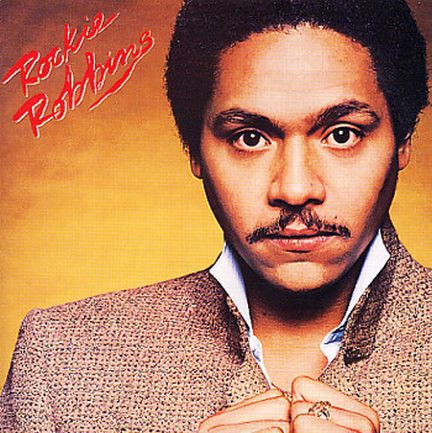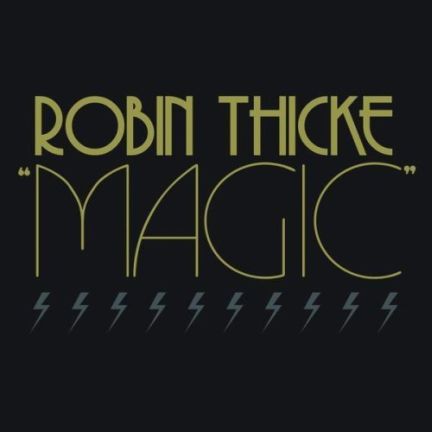
The balladeer is an institution in black music. His odes to the joys of intimacy stir eroticism in sisters and provide brothers with all the right moves to bask in its fiery glow. In the late seventies and eighties, Barry White, Teddy Pendergrass, Peabo Bryson, Luther Vandross and Freddie Jackson, among others, rode the crest of romanticism created by their forefathers with a sensuality that was – and in many ways still is – unmatched. Whether hard or smooth, each had his own flavor when it came to singing about the need of love. In everyone from J. Holiday to Jaheim, you hear their influence.
However, caught in the rush of Bryson’s crosswinds and the house that wasn’t Vandross’ home was a talented young man from Minneapolis named Rockie Robbins. Between 1979 and 1985, the singer issued four albums (three for A&M and one for MCA) of light urban contemporary fare that have aged well over the years, even if they may not be what some would deem distinct. Though the lovely 1980 single “You and Me” became his only sizeable hit, Robbins’ material is quite popular among R&B fans and collectors. Each of his albums is infinitely listenable, but it’s his eponymous 1979 debut that remains the most endearing and ranks as my favorite.
Produced by Chicago visionaries Richard Evans and Johnny Pate, “Rockie Robbins” is reminiscent in many ways of Bryson at his peak, which is to be expected since Evans frequently collaborated with the popular singer. Agile ivory tickling, bubbly bass and punchy horns frame Robbins’ glass clear tenor quite nicely here, as they never thrust the singer into the background or force him to do back flips to make his mark in the mix. What you have is a breezy, low-key affair, and Robbins thrives beautifully.
Sensual and unaffected, Robbins’ voice was a perfect fit for the LP’s ballad selections. “If I Ever Lose You” and the languid “When I Think of You” are first rate, with the latter being the best cut on the album. Featuring an impassioned vocal and sweet strings, it’s the kind of song you could easily get lost in, even if it does only last a few short minutes. Such magic helped Robbins’ cover of the Earth, Wind and Fire favorite “Be Ever Wonderful” become a mid-charting single that climbed to No. 67 on the black singles chart. It didn’t top the original, but Robbins managed to bring a flair and emotion to the cut that I can honestly say I don’t quite get from the EWF version. Though only a modest chart success, the song became a radio hit and remains a favorite among Quiet Storm programmers across the country.
There’s very little dance material here, which is not necessarily a bad thing. While cuts like “Funk Street” and “Miss Dynamite” are solid toe-tappers, they don’t hold up past a few listens and do little to boost the record’s overall value. He fairs better on down-tempo grooves, as “I Can Hardly Wait,” “I Love You Only” and “Don’t Deny Me” are mellow enough to let his vocals shine and at the same time capture a bit of the youth and energy every new singer needs to display. “Sho’ is Bad” is the strongest of the lot, a slow burning slice of soft funk that could have easily been waxed by label mates The Brothers Johnson. When combined with the album’s love songs, such numbers not only casted the mold from which his follow-ups would emerge, they also showed Robbins was more versatile than a casual listener might expect.
Robbins would follow his self-titled debut with the albums “You and Me” (1980) “I Believe in Love” (1981) and “Rockie Robbins” (1985, not to be confused with his debut), all of which feature well-crafted songs and fine vocal performances. He also performed the song “Emergency” for the Grammy-winning hit soundtrack to the film “Beverly Hills Cop” in 1984. The “I Believe in Love” album in particular is worthy of interest for the inclusion of two songs that were featured on LPs by more popular singers during the same period: “Look Before You Leap” would surface on Cheryl Lynn’s Luther Vandross-produced LP “Instant Love” in 1982, while “My Old Friend” can be heard on Al Jarreau’s 1981 crossover jazz smash “Breakin’ Away.”
And despite the fact it’s highly sought after, Robbins’ debut remains out of print Stateside, though the occasional overpriced import will appear on eBay or Amazon. Thankfully vinyl copies of the album are easy to obtain without breaking the bank.
He never ascended to the ranks of many of his contemporaries but Rockie Robbins was a hell of a singer, noteworthy not because of earth-shaking bombast or chutzpah, but because of the simple, unpretentious character of his voice. His outstanding debut is a classy example of how sticking to the basics can be just as powerful and aiming to break through them.
These kids today could take some notes.

